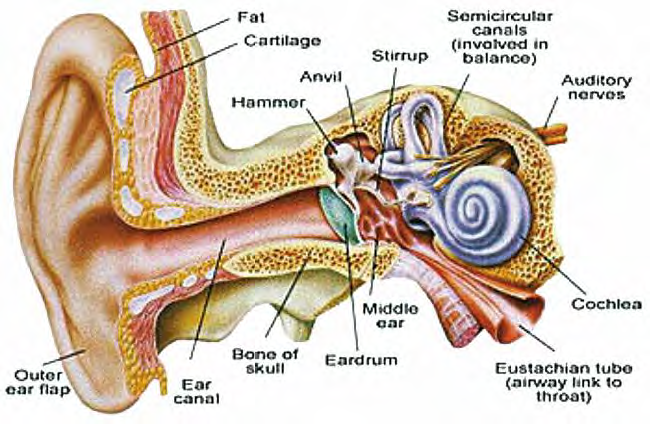Hearing loss is one of the most common conditions affecting older adults. Approxi mately 47 percent of adults 75 years of age or older have a hearing impairment. Men are more likely to experience hearing loss than women. It may be embarrassing and often leads to social isolation or depression, as many find it hard to have a conversation with friends and family. There are other unintended consequences to a person’s quality of life such as trouble understanding a doctor’s advice, responding to warnings and hearing phone calls or alarms.
Hearing loss is a common problem caused by noise, aging, disease and heredity. Hearing is a complex sense involving both the ear’s ability to detect sounds and the brain’s ability to interpret those sounds.
What are the different types of hearing loss?
There are two general categories of hearing loss.
- Sensorineural hearing loss occurs when there is damage to the inner ear or the auditory nerve. This type of hearing loss is usually permanent.
- Conductive hearing loss occurs when sound waves cannot reach the inner ear. The cause may be earwax build up, fluid or a punctured eardrum.
What is Presbycusis?
A type of sensorineural hearing loss is called Presbycusis and comes on gradually as a person ages. Presbycusis can occur because of changes in the inner ear, auditory nerve or hearing pathways in the brain. Some of its causes are aging, loud noise, heredity, head injury, infection, illness, certain prescription drugs and circulation problems such as high blood pressure. Presbycusis may make it hard for a person to tolerate loud sounds or to hear what others are saying.
How is hearing loss treated?
Seek help right away, hearing problems that are ignored or untreated can get worse. The physician will refer to an audiologist, otolaryngologist or ear, nose and throat specialist. The audiologist uses an audiometer to test the ability to hear sounds of different pitch and loudness. These tests are painless. Audiologists will select a hearing aid best suited to the senior. Assistive and adaptive devices such as telephone amplifying devices, TV and radio listening systems can help seniors to live well with less than perfect hearing. Hearing aids, special training, certain medicines and cochlear implants are some of the choices for people with hearing problems.
Tips to use when talking with someone who has a hearing problem:
- Face the person and talk slowly and clearly.
- Stand in good lighting and reduce background noises to a minimum.
- Use facial expressions or gestures to give useful clues.
- Repeat if necessary, using different words.
- Include the hearing-impaired person when talking, this helps keep the senior from feeling alone and excluded.
- Be patient and stay positive.


Leave a Reply